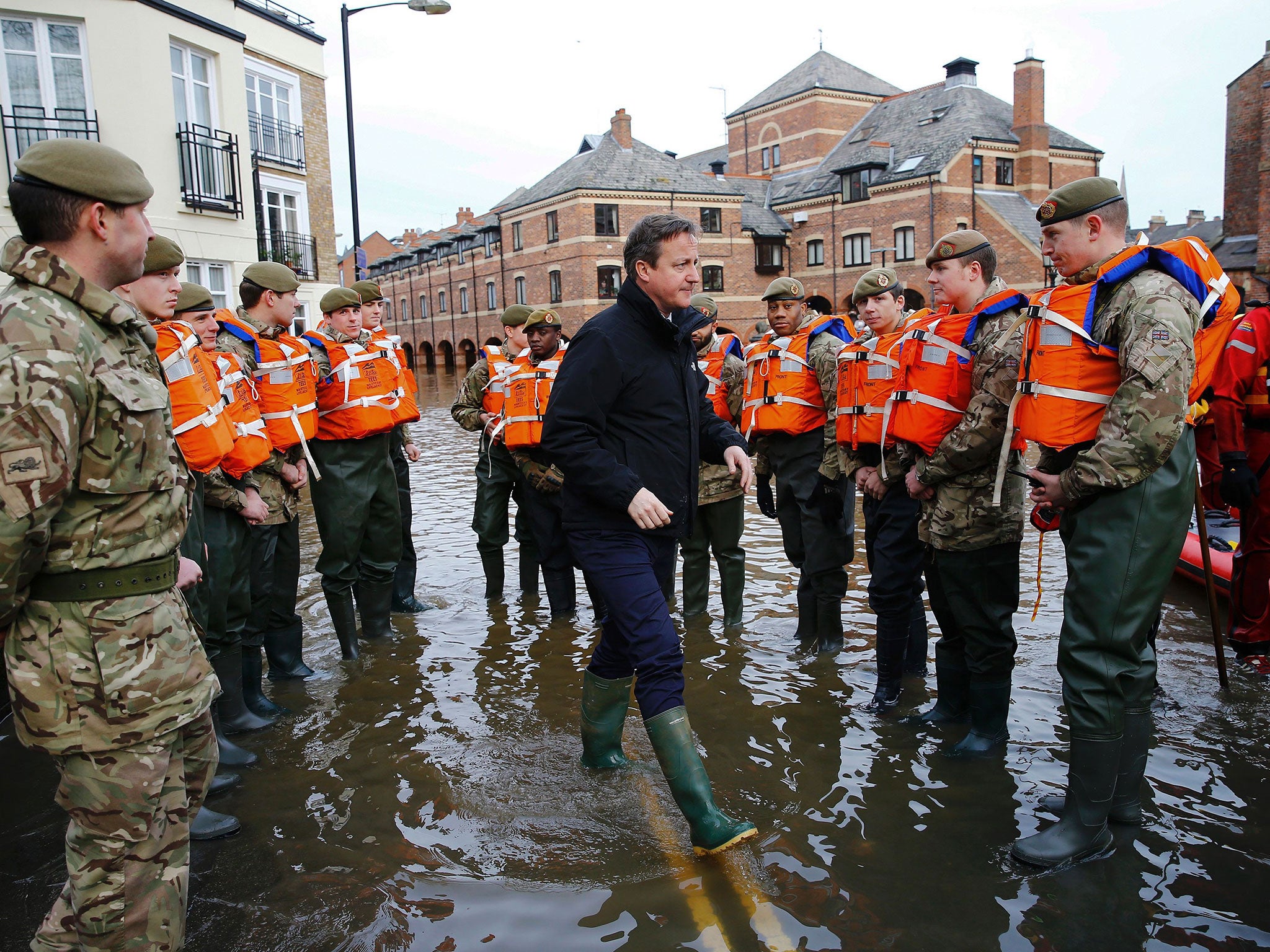The link between the climate movement and the fightback against cuts and austerity has become clear amid the UK flooding
'Both expose a governmental spending and policy agenda which is making our country more vulnerable, not more resilient'

Almost two years ago, now, students at Aberystwyth University in Wales were sent an email telling them to “pack an overnight bag NOW and be prepared to leave in a few minutes.” Exams were cancelled, and 250 students were evacuated from their homes, escaping the storm surge which battered the coastline, bringing widespread floods across the UK.
In total, over 1,000 homes were evacuated during what turned out to be the wettest winter since records began. Our Prime Minister said “money was no object” in the relief efforts, and added there were “lessons to be learned.”
Since then, cuts to local authorities of over 40 per cent are being topped off with cuts to overall flood defences of 14 per cent. And now much of the country is underwater again.
Looking at the Facebook page set up by the University of York students’ union in response to these floods is both upsetting and uplifting. It’s nightmarish to see students posting messages to ask if anyone knows of anywhere you can get to by foot which sells food. But it’s also great to see students shaping such an effective network to look out for each other.
Of course, the real question is this: how could this have happened again, so soon after our last flooding disaster? Some say it’s climate change. Some say it’s government mismanagement. Actually, it’s both.
Members of the right-wing press have been quick to pounce on the idea of Cameron using climate change as an ‘excuse’ for the floods, masking his spending cuts. There is some truth in this. Climate change has the feel of an invisible threat, beyond our national control, and that’s why these floods mark one of the few times you see Cameron mentioning the issue in day-to-day politics. It provides a backdoor to slip through when asked why he hasn’t taken more action since the floods of 2014.
But just because it happens to be a convenient bogeyman, it doesn’t mean climate change hasn’t contributed to these floods. And it doesn’t mean there’s nothing our government can do about it either. They’re in a perfect position to show bold leadership on the shift to a sustainable future. Instead, though, they’re permitting fracking in our national parks and slashing renewables subsidies, days after signing a global climate deal.
Last year, we hit one degree of average global warming, taking us halfway to breakdown, and putting a hell of a lot of extra energy in the climate system. Floods like these are to be expected. Sure, we’re also experiencing the El Nino effect this year, but there’s no denying the general trend of what’s happening as we pump extra energy into the climate system. Since 2000, we’ve had the five wettest years ever. Our weather is getting weirder, and it’ll only get worse unless we offer a proper response to events like these.

Cameron’s response to these floods has been similar to his response two years ago. With the emergency services overwhelmed and hit by their own cuts, he’s sent in the Army to shift sandbags and help out. But, of course, they can’t actually unflood your house. And sure, government can help you access your insurance money more quickly - but that won’t buy you back your wedding photos.
What we need to see in the long term is decent preventative action: a real commitment to making our climate more stable, and a public spending agenda which protects, rather than impoverishes, our communities.
The climate movement and the fightback against cuts and austerity are often seen as separate struggles, but these floods make the link very clear. The recent cuts to renewables and the cuts to local authorities flow from the same ideology. Both expose a governmental spending and policy agenda which is making our country more vulnerable, not more resilient. We need to cut carbon, not public spending. That’s the only thing which can keep us on dry ground.
Twitter: @PiersTelemacque
Piers Telemacque is vice president for society and citizenship with the National Union of Students (NUS)
Join our commenting forum
Join thought-provoking conversations, follow other Independent readers and see their replies
Comments
Bookmark popover
Removed from bookmarks